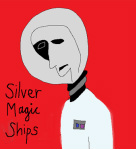
This is the case with the deaths of two men in their 90s. Their passing is, of course, a personal loss to their friends and relatives. I never knew them, but I am invited to pay my respects because these two gentlemen feature in the collective consciousness. This is due to two events that form part of the national story, namely the Jarrow March of 1936 and the experiences of Britons incarcerated overseas during the Second World War.
The demise of Con Shiels (the last survivor of the Jarrow March) and Alfie Fripp (a veteran of no fewer than twelve POW camps) marks the moment when two iconic occurrences pass from lived experience to “history”. This liminal moment gives the past a special frisson. We watch as the final living link to a momentous event is broken. This is history in the making.
There are lots of other issues that flow from these particular stories. Is history made by the many or the heroic (or villainous) few? Can we learn from “everyday heroes” like Con Shiels and Alfie Fripp? If so, what part (if any) do we play in history? And what actually counts as a historical event? How influential was the Jarrow March? Did it change the course of history? Or is its significance given undue importance by subsequent commentators?
In the BBC’s report of the death of Con Shiels it is notable that the trade unionist, Steve Turner is quoted calling for a “new ‘rage against poverty’”. Similarly, in 2011 the Jarrow March was re-enacted to mark its 75th anniversary and draw attention to youth unemployment. This demonstrates how a historical “fact” is nothing without interpretation. And this makes it inevitable that the politics of the present will get woven into the patterns of the past.
The Jarrow example provides a flavour of things to come. Get ready for the bickering and arguing that will be triggered when Margaret Thatcher dies!
The shadow of the Iron Lady looms large over another historically-flavoured news story: the status of the Falkland Islands (Islas Malvinas). This latest episode relates to Cristina Fernandez de Kirchner’s open letter to British prime minister, David Cameron in which she decries the continuance of “a blatant exercise of 19th-century colonialism” and calls for a negotiated solution as urged by the General Assembly of the United Nations way back in 1965.
Interestingly enough, one of the BBC web links connected to de Kirchner’s rhetorical salvo refers to new documents released under the British government’s 30-year rule. These reveal just how surprised Thatcher was by the Argentine invasion. Access or restrictions concerning such primary evidence play a crucial role in determining how history gets written and re-written.
Another link stemming from the latest crisis facing the Falkland Islands reminds us of the glorious / tragic events of 1982 via the commemorative events marking the thirtieth anniversary of the end of the Anglo-Argentine war.
An anniversary such as this represents an additional way in which the past enters the present. The commemorative re-enactment of the Jarrow March is a case in point. A further example is to be seen amongst today’s crop of news stories, namely the centenary of Rhiwbina garden village in Cardiff.
But what about events of today that are destined to become tomorrow’s history?
Well, the year that has just passed has gone down in the record books as the “second wettest on record”. There is reason to believe that this will soon be surpassed, with reports that “extreme rainfall” is on the rise.
And this is an appropriately apocalyptic note to end this account of history today. Because one of the factors motivating our love of the past is a widespread anxiety about the future. History’s near cousin is nostalgia. Poverty, unemployment and war take on a rosy hue thanks to the patina of time. Using the vantage point of the present we know that things worked out alright in the end...
Or did they?





